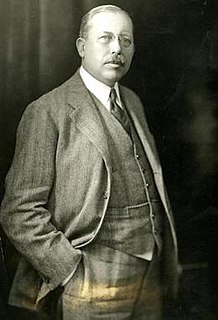A Quote by Francois de La Rochefoucauld
There are few occasions when we should make a bad bargain by giving up the good on condition that no ill was said of us.
Related Quotes
Or if the hypothesis were offered us of a world in which Messrs. Fourier's and Bellamy's and Morris's Utopias should all be outdone, and millions kept permanently happy on the one simple condition that a certain lost soul on the far-off edge of things should lead a life of lonely torment, what except a specifical and independent sort of emotion can it be which would make us immediately feel, even though an impulse arose within us to clutch at the happiness so offered, how hideous a thing would be its enjoyment when deliberately accepted as the fruit of such a bargain?
Ati sarvatra varjayet: Excess of anything is bad. Some of us are attracted to Good. But the universe tries to maintain balance. So what is good for some may end up being bad for others... Agriculture is good for us humans as it gives us an assured supply of food, but it is bad for the animals that lose their forest and grazing land.
If we remembered everything, we should on most occasions be as ill off as if we remembered nothing. It would take us as long to recall a space of time as it took the original time to elapse, and we should never get ahead with our thinking. All recollected times undergo, accordingly, what M. Ribot calls foreshortening; and this foreshortening is due to the omission of an enormous number of facts which filled them.

































